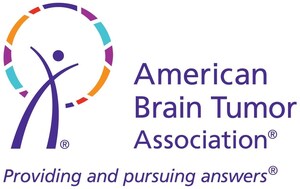Letters of Intent Due by December 17, 2024
CHICAGO, Oct. 30, 2024 /PRNewswire/ -- The Metastatic Brain Tumor Collaborative (MBTC), created by the American Brain Tumor Association (ABTA), announced a request for applications for one-year, $50,000 research grants. Faculty – including early-career faculty – are encouraged to apply. Applicants should propose high-risk, high-impact research projects that will improve the understanding of brain metastasis and have the potential to change current diagnostic or treatment paradigms for metastatic brain tumor care.
The letter of intent deadline for all interested applicants is December 17, 2024, and researchers can access the request for applications here.
"When the ABTA discovered the lack of patient advocacy organizations dedicated to metastatic brain tumor education and support, we formed the Metastatic Brain Tumor Collaborative to bring together like-minded organizations who recognized more needs to be done to serve this patient population," said Nicole Willmarth, Chief Mission Officer of ABTA. "This new partnered research grant underscores our collective commitment to accelerate research and treatment discovery in metastatic brain tumors, understanding how providing vital seed money for promising new research can change lives."
The MBTC partners working to support this research opportunity focused on CNS Metastasis, include the ABTA, Kidney Cancer Association, LUNGevity Foundation, the Melanoma Research Foundation, and Metastatic Breast Cancer Alliance. The larger MBTC (ten organizations in all) aims to support and empower patients diagnosed with a metastatic brain tumor and to collaboratively advance research that addresses the needs of this patient population.
Metastatic brain tumors start somewhere else in the body and travel to the brain. Lung, breast, kidney, colon, and melanoma (skin) cancers are the most common primary cancers that spread to the brain. Metastatic brain tumors are the most common type of brain tumors in adults. Current estimates suggest approximately 200,000 adults are diagnosed annually in the United States, and the average prognosis following diagnosis is only a few months.
MBTC is guided by national medical experts and offers a host of free educational resources for patients facing a metastatic brain tumor diagnosis. In addition, a first-of-its-kind survey of patients, caregivers and physicians on the diagnosis and treatment of brain metastases – conducted by the ABTA as part of the MBTC – revealed disparities in practice patterns and communication around metastatic brain tumors. The survey results, published in the journal Neuro-Oncology Practice, highlight the need to increase accessibility to clinical trials, establish clear standards of care and improve physician-patient communication reflective of the unique needs of patients with brain metastases. The survey also highlighted the need for more research on CNS metastases, which was the driving force behind developing a new grant mechanism to specifically fund research to improve care for this patient population.
The MBTC appreciates the unwavering support of its partner organizations across the variety of programs for patients and now researchers, including Aim at Melanoma, Go2 for Lung Cancer, Fight Colorectal Cancer, Kidney Cancer Association, Living Beyond Breast Cancer, LUNGevity Foundation, the Melanoma Research Foundation, Metastatic Breast Cancer Alliance, Society for Neuro-Oncology, and Susan G. Komen.
About the American Brain Tumor Association
Founded in 1973, the American Brain Tumor Association provides comprehensive resources to support the complex needs of brain tumor patients and caregivers, across all ages and tumor types, as well as the critical funding of research in the pursuit of breakthroughs in brain tumor diagnoses, treatments, and care. To learn more, visit, abta.org or call 800-886-ABTA (2282).
SOURCE American Brain Tumor Association

WANT YOUR COMPANY'S NEWS FEATURED ON PRNEWSWIRE.COM?
Newsrooms &
Influencers
Digital Media
Outlets
Journalists
Opted In



Share this article